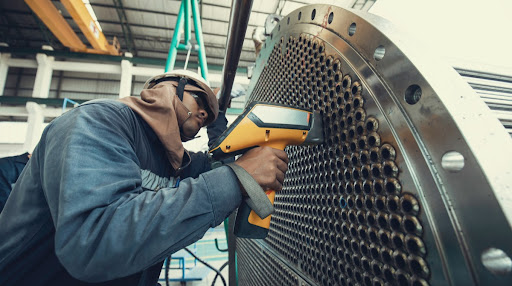
Boiler or heating system failure, especially during the middle of winter, can be a facility manager’s worst nightmare. Not only can these system failures be dangerous for people working in the facilities, the facilities themselves can also be at risk. While proper preventative maintenance can help reduce the likelihood of these failures occurring, every facility should have a plan in case they do.
Failure Prevention
Everyone can agree, preventing failures is much better than fixing them after they occur. While you can't prevent every failure, steps can be taken to minimize the likelihood of system failures.
Related: Boiler Cleaning Service and Procedures
Inspection Plans
Inspection plans may not be the most exciting aspect of facility management, but noticing key details early can prevent catastrophe later on. Discoloration, cracking, or signs of corrosion can be early warning signs of damage that is occurring. Correcting these issues early prevents them from getting to the point of no return.
Troubleshooting Guides
The bulk of failures that boilers experience are fairly commonplace. By knowing what failures are most likely to occur and documenting the corrective actions, even technicians with minimal experience at your facility can determine where to look to get the boiler or heating system operational again. Troubleshooting guides are also a great way to pass on lessons learned from the more experienced staff to younger technicians.
Failure Planning
How detrimental would a boiler or heating system failure be for your facility? If the impact would be severe, then your facility can’t afford to go without contingencies. Here are some key areas to address:
Lock Out Tag Out
When a failure or dangerous condition is noted, is there a procedure to lock out that piece of equipment? It is critical that once a piece of equipment is locked and tagged, it is not put back into operation until the issue is corrected and the employee who tagged it is safe.
Backup Fuel
What fuel does your boiler use to operate? If a disruption occurs to the fuel source of your boiler, you’ll need a plan to keep it operating. Storing backup fuel (safely) on site is one of the best actions you can take, but requires additional planning.
External Boiler Connection
When a major boiler failure occurs, it may be quite some time before the boiler will be operational again. Having connections outside your facility will make it much easier to bring in a temporary boiler. External connections allow for the boiler to be dropped off outside and hooked up in much less time than it would take if the only connections were in a mechanical room.
Related: Boiler Rentals
What to Do When Prevention Isn’t Enough
Once a failure has occurred, protecting the lives and health of personnel in the facility must be the number one priority. Nothing else should take priority until personnel are safe.
Once people are secured and the situation is safe, the failure analysis begins. Performing a formal Root Cause Analysis (RCA) is paramount in determining the true cause of a failure. The element that ultimately initiates the failure often starts many layers prior to when the failure occurs. RCA helps to determine what factors played a part in the failure and how they can be mitigated in the future.
Lessons learned from failures need to be shared. If important information is discovered from an RCA, getting that information to other affected parties can help prevent further loss or damage to people or property.
Planning for failure is not an easy task. Determining why a failure occurred is even harder. The experts at Tate are here to help. Download our Boiler Maintenance Checklist and keep up the maintenance necessary to keep your boiler running, and feel free to contact us about repairs, inspections and maintenance as needed.
